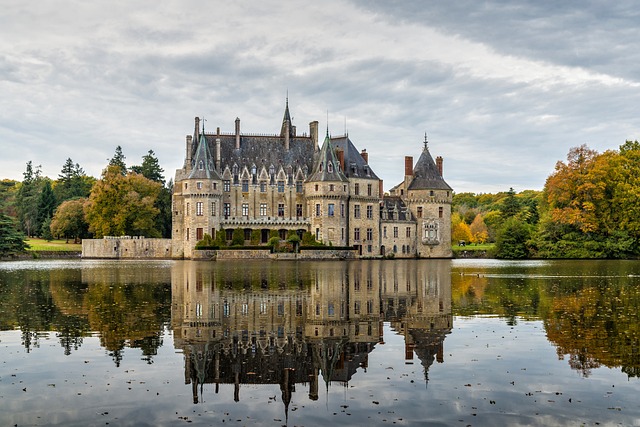Understanding Belgian Culture and Etiquette: A Guide to Navigating Belgium with Grace

Belgium, a small yet culturally diverse country in the heart of Europe, is often described as a crossroads of cultures. Its unique blend of Flemish (Dutch-speaking), Walloon (French-speaking), and German-speaking communities creates a rich tapestry of traditions, customs, and etiquette. Whether you’re planning a visit, moving to Belgium, or simply curious about its culture, understanding Belgian norms and values will help you navigate social interactions with ease and respect. In this article, we’ll explore the key aspects of Belgian culture and etiquette, from communication styles to dining habits and beyond.
1. Multilingualism: The Heart of Belgian Identity
One of the first things you’ll notice about Belgium is its linguistic diversity. The country has three official languages—Dutch, French, and German—and each region reflects its own cultural nuances.
- Flanders (Northern Belgium) : Dutch (Flemish) is the primary language here. People in Flanders tend to be more direct and pragmatic, influenced by their proximity to the Netherlands.
- Wallonia (Southern Belgium) : French dominates this region, and the culture leans toward being more expressive and relationship-oriented, similar to neighboring France.
- Brussels : As the capital city and home to EU institutions, Brussels is officially bilingual (Dutch and French). English is widely spoken, especially among younger generations and expats.
- Etiquette Tip : Always try to greet locals in their native language. A simple “Bonjour” (hello) in French or “Goedendag” (good day) in Dutch goes a long way in showing respect for their culture.
2. Politeness and Formality: The Belgian Way
Belgians value politeness and formality in social interactions. They are known for their reserved demeanor, which may come across as distant at first but is rooted in a deep sense of respect for others.
- Greetings :
- Handshakes are common in both professional and casual settings. They should be firm but not overly aggressive.
- First names are typically used only after an invitation to do so; otherwise, use titles like “Monsieur” (Mr.) or “Madame” (Mrs.).
- Conversation Style :
- Belgians appreciate thoughtful, well-mannered conversations. Avoid interrupting or raising your voice, as these behaviors are considered rude.
- Topics such as food, travel, sports (especially football), and art are safe conversation starters. Politics and religion, however, can be sensitive subjects due to regional divisions.
3. Punctuality: Time Matters
Punctuality is highly valued in Belgian culture. Being late to appointments, meetings, or social gatherings is seen as disrespectful unless there’s a valid reason.
- Professional Settings : Arrive on time for business meetings, and always confirm attendance beforehand.
- Social Gatherings : While some flexibility exists for informal events, it’s best to arrive within 5–10 minutes of the agreed time.
4. Dining Etiquette: Savoring Belgian Cuisine
Belgium is renowned for its culinary delights, including waffles, chocolate, fries, and beer. Sharing meals is an important part of Belgian culture, and proper dining etiquette reflects their appreciation for good food and company.
- Table Manners :
- Wait for the host to indicate where to sit and when to begin eating.
- Keep your hands visible on the table (but not your elbows!) and avoid resting them on your lap.
- Use utensils for most dishes—even sandwiches and pizza are often eaten with a knife and fork.
- Tipping :
- Tipping is not mandatory but appreciated. Round up the bill or leave 5–10% if service was satisfactory.
- Beer Culture :
- Belgium boasts over 1,500 varieties of beer, many brewed according to centuries-old traditions. When offered a local brew, accept graciously—it’s a gesture of hospitality.
5. Work-Life Balance and Professional Etiquette
Belgians take pride in maintaining a healthy work-life balance, and this philosophy extends to their professional environment.
- Business Meetings :
- Dress conservatively and professionally. Dark suits and polished shoes are standard for men, while women opt for tailored outfits.
- Prepare thoroughly for meetings, as Belgians value efficiency and attention to detail.
- Decision-making processes can be slow and consensus-driven, particularly in larger organizations.
- Work Hours :
- Most businesses operate between 9 AM and 5 PM, with lunch breaks lasting around an hour. Shops often close early on weekends, and Sundays are typically reserved for family time.
6. Celebrations and Traditions: Embracing Festivals
Belgium celebrates a variety of festivals throughout the year, reflecting its Catholic heritage and regional diversity.
- Carnival of Binche : Held annually before Lent, this UNESCO-recognized festival features vibrant parades and participants dressed as “Gilles,” wearing elaborate costumes and wooden clogs.
- Ommegang in Brussels : This historical procession commemorates Emperor Charles V’s visit to Brussels in 1549 and showcases medieval pageantry.
- Christmas Markets : Cities like Brussels and Bruges transform into winter wonderlands during the holiday season, complete with twinkling lights, festive stalls, and seasonal treats.
7. Regional Differences: Unity in Diversity
Understanding Belgium requires acknowledging its regional distinctions. Each area has its own personality, cuisine, and even attitudes toward life.
- Flanders vs. Wallonia :
- Flemish Belgians are generally more reserved and business-oriented, while Walloons tend to prioritize relationships and leisure.
- Food preferences also vary: think mussels and fries in the north versus hearty stews and game dishes in the south.
- Respect for Autonomy :
- Regional pride runs deep, so avoid generalizing all Belgians under one stereotype. Instead, embrace the differences that make each community unique.
8. Social Norms and Values
Belgians place great importance on equality, tolerance, and environmental consciousness. These values shape their daily lives and societal expectations.
- Environmental Awareness :
- Recycling is strictly enforced, and eco-friendly practices are encouraged nationwide.
- Public transportation is efficient and widely used, reducing reliance on cars.
- Gender Equality :
- Women enjoy equal rights in education, employment, and politics. However, traditional gender roles still persist in certain rural areas.
- LGBTQ+ Acceptance :
- Belgium legalized same-sex marriage in 2003 and remains one of the most progressive countries in terms of LGBTQ+ rights.



